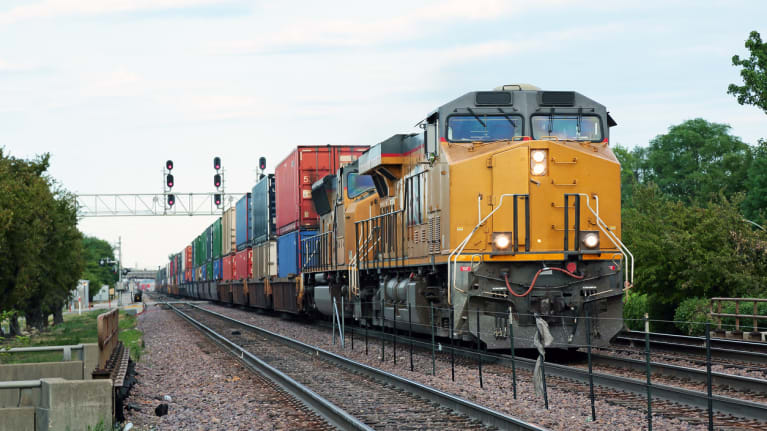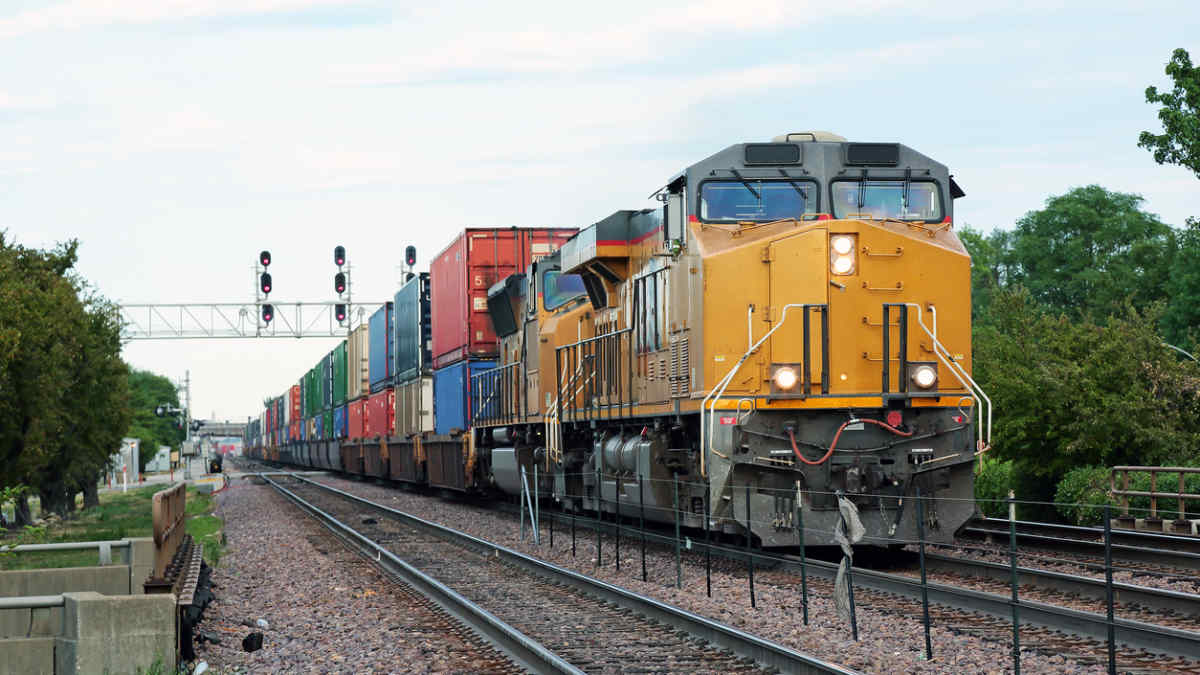

?American railway and port workers are preparing for a possible strike. If it happens, it could have huge, widespread economic and supply chain implications for the nation.
We rounded up a selection of relevant articles from SHRM Online and other trusted news sources.
Railway and Port Unions in Negotiations
Two huge labor disputes, in the railways and at the ports, threaten to re-tangle supply chains in the United States. A shutdown of the nation’s rail system could cost $2 billion a day.
Over the weekend, negotiations continued between the country’s largest freight railroad companies, including Berkshire Hathaway’s BNSF, Union Pacific and CSX, and the majority of the unions representing around 115,000 workers. They’re racing to meet a Friday deadline, when a cooling off period runs out, and workers could strike.
A labor contract for port workers on the West Coast expired in June, leaving open the possibility of a strike. Negotiations continue with the union for port workers.
(Axios)
Union Pacific
About 60,000 union members who work for Union Pacific are set to go on strike. Even though 45,000 other union members belong to unions that have reached tentative deals with the railroads, a strike by engineers and conductors would bring the freight rail system, which carries nearly 30 percent of the nation’s freight, to a grinding halt.
A prolonged strike could mean some empty shelves in stores, temporary closures at factories that don’t have the parts they need to operate, and higher prices due to the limited availability of various consumer goods.
Labor law for railroad and airline employees is different from the law that controls labor relations for the vast majority of private-sector workers. The Railway Labor Act allows Congress to keep workers on the job in case of a strike or a lockout of workers by management.
Unions say a shortage of workers has meant their members need to be on call to report to work on short notice seven days a week, even on the days they’re not scheduled to work. Railroad management said that the Presidential Emergency Board had considered and “expressly rejected” the union’s demands on scheduling.
(CNN)
Supply Chain Concerns
Some freight carriers have begun limiting services, suspending hazardous material shipments and parking trains in what appears to be preparations for a lockout. Amtrak, which carries passengers on freight lines, canceled some long-distance routes Monday.
A national railroad strike could derail critical deliveries of chlorine to wastewater treatment plants and coal to utility plants, among other potentially crippling disruptions, prompting senior White House aides Tuesday to review contingency options for protecting the nation’s drinking water and energy supply. White House aides are looking at how to ensure essential products carried by rail—such as food, energy and key health products—could still reach their final destination even in the event of a potential strike.
The most important issues holding up an agreement include points-based attendance policies that penalize workers, up to termination, for going to routine doctor’s visits or attending family emergencies. Conductors and engineers say they do not receive a single sick day, paid or unpaid. The National Carriers’ Conference Committee, which represents the railroads in negotiations, has denied that workers do not receive sick time.
Administration Response
President Joe Biden has been directly in touch with unions and railroad companies to try to avert a potential strike that is already disrupting freight and passenger service across the country, according to a White House official.
Labor Secretary Marty Walsh participated in negotiations last week between the parties and the National Mediation Board. Transportation Secretary Pete Buttigieg and Agriculture Secretary Tom Vilsack have also been working with the parties to find a resolution.
(Politico)
Railway Labor Act Creates Federal Jurisdiction
Under the Railway Labor Act, federal jurisdiction may exist over a seemingly minor disciplinary issue if the discipline was allegedly based on anti-union animus. In a recent court case, a union established discrimination when an offsite brawl resulted in the suspension of members of its leadership, but not a pro-railway member, the 5th U.S. Circuit Court of Appeals ruled.
Nurses and Teachers Strike
About 15,000 nurses in Minnesota went on strike Monday morning, saying they are fighting for better staffing and better care for their patients. The strike is against 13 hospitals and scheduled to last three days. The union says the strike is not about pay, but over letting members provide the quality of care they want to provide to patients.
Meanwhile, teachers in Seattle went on strike for at least four days. The Seattle Education Association reached a tentative agreement with Seattle Public Schools on Tuesday to end the strike. Some of the bigger issues that stalled reaching a contract agreement were manageable caseloads, more pay, more student mental health support, and smaller teacher-to-student ratios in the special education and multilingual programs.
(CNN and The Seattle Times)

